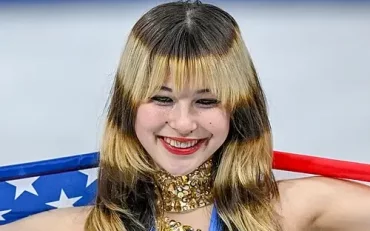What it’s Really Like Being an Orthodox Jewish Actor in Hollywood
The Hollywood industry can seem so intimidating, most people don’t even try to break in, let alone when you’re from an Orthodox Jewish neighborhood. Esti Michelle Rosenblatt, a Hasidic Lubavitcher in Brooklyn, is breaking that stereotype — proving religion doesn’t have to hold you back from being cast in mainstream media, even when you are visibly Jewish. Her four children have been cast in major TV shows like The Marvelous Mrs. Maisel and huge films like The Greatest Showman. Esti said in the latest Jew in the City podcast that all of the cast and crews she’s worked with have gone above and beyond to be respectful. Her children make a Kiddush Hashem each time they represent Judaism on and off camera, undoing the stereotypical portrayals of Orthodoxy in the media.
The children’s acting careers began at ages eight and six when Esti saw a posting from Grant Wilfley Casting, “looking for thin built Caucasian children.” The schools her sons attended didn’t offer many extra curriculars, so she thought this would keep them busy in the afternoons. Her sons were cast as extras for the film, Rebel in the Rye, starring Kevin Spacey. Unaware of the film’s content during auditions, Esti’s sons played Holocaust survivors that were being liberated from a concentration camp.
The boys were also extras in The Greatest Showman. In their scene, they are standing and clapping with kippahs visible on their heads. They were not supposed to be wearing kippahs in the original costume design, so Esti had them wear their kippahs far back, but when the director passed by them and saw their kippahs, the boys were told to make them visible.
Esti’s older son has also played a dead child in a hospital on The Blacklist. Her younger son was in The Land of Study Habits. He actually had a small speaking part because he played the main character in a flashback.
Esti continued to pursue opportunities for her daughters. Her twin girls were cast as Esther Maisel in The Marvelous Mrs. Maisel’s fourth season. Grant Wilfley Casting was looking for twins for background work for the show, which is about a Jewish family. While Esti’s girls were only 2 and a half at the time, they were able to recite their lines, “which is a big deal,” says Esti. The crew was impressed, and the girls got the part.
Esti has navigated Orthodoxy quite well in the tough Hollywood industry. She’s been open about her children’s needs and the production teams have been very respectful of the religious accommodations needed. She informs the directors right away that her children cannot be on set after 1 o’clock on Fridays or come in on Saturdays. She also sends in a schedule of the Jewish holidays. Esti says, “[The directors] were very respectful of that,” not just in words but also in action. One time her sons were on set on Friday, and everyone helped to make sure things moved along so they could be out on time. There was another instance when her sons were supposed to be on set eruv Purim but “they ended up just moving it to a different day because it was going to be too hectic,” recalls Esti.
Additionally, when the girls were on The Marvelous Mrs. Maisel, the crew made sure there was always kosher food to eat when they were on set. There were scenes where Esti’s girls had to eat at the dinner table and the props person in charge of food researched “kosher,” found kosher food and learned to wrap it up twice when reheating it. Additionally, when Esti and her girls were on set, the crew made sure there was kosher food in their dressing rooms since they could not eat the hot food on set. Esti says, “we haven’t had a bad situation ever, which is really nice in this industry.”
While the girls are still auditioning for roles, Esti’s boys no longer act “because they aren’t any tznius (modest) roles for them at this point,” says Esti. She recalls an incident where she had sent in photos of her boys to a casting director, and she asked for photos without their kippahs. Esti was taken aback because there are kids with hijabs and other physically diverse attributes “but their yarmulkes [were] too diverse” says Esti.
Esti believes that the casting director’s reaction was due to a lack of Orthodox actors and accurate Orthodox portrayals in the Hollywood industry. While Esti’s children have had great success with background acting, she does not know of any other Orthodox kids who are background actors. She can only recall one Orthodox actor that she met on the set of The Marvelous Mrs. Maisel last year.
Esti says “she knows Orthodox Jewish men who would act if they knew this was available to them. I feel like it [an] outlet that people could really use.” She believes Orthodox Jews should be involved in mainstream media and TV and that through this, there will be better Jewish representation.
“As far as portrayals of Orthodox Jews on screen, we have a very long way to go,” Esti shares. Orthodox Jews are portrayed as “gimmicky” and have tacky and unrealistic payos (sidelocks). Looking into the future, Esti hopes that in addition to open roles for Orthodox Jews, there will be a sitcom starring only Orthodox Jews but they will be portrayed as regular people, which will combat the unrealistic depictions on TV and in film.
If you found this content meaningful and want to help further our mission through our Keter, Makom, and Tikun branches, please consider becoming a Change Maker today.







